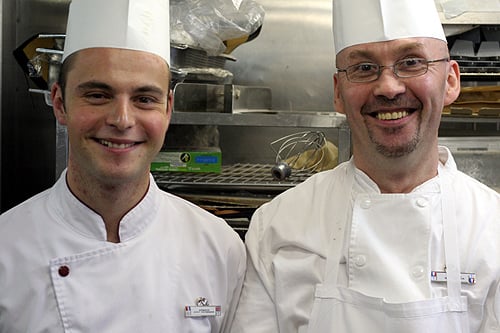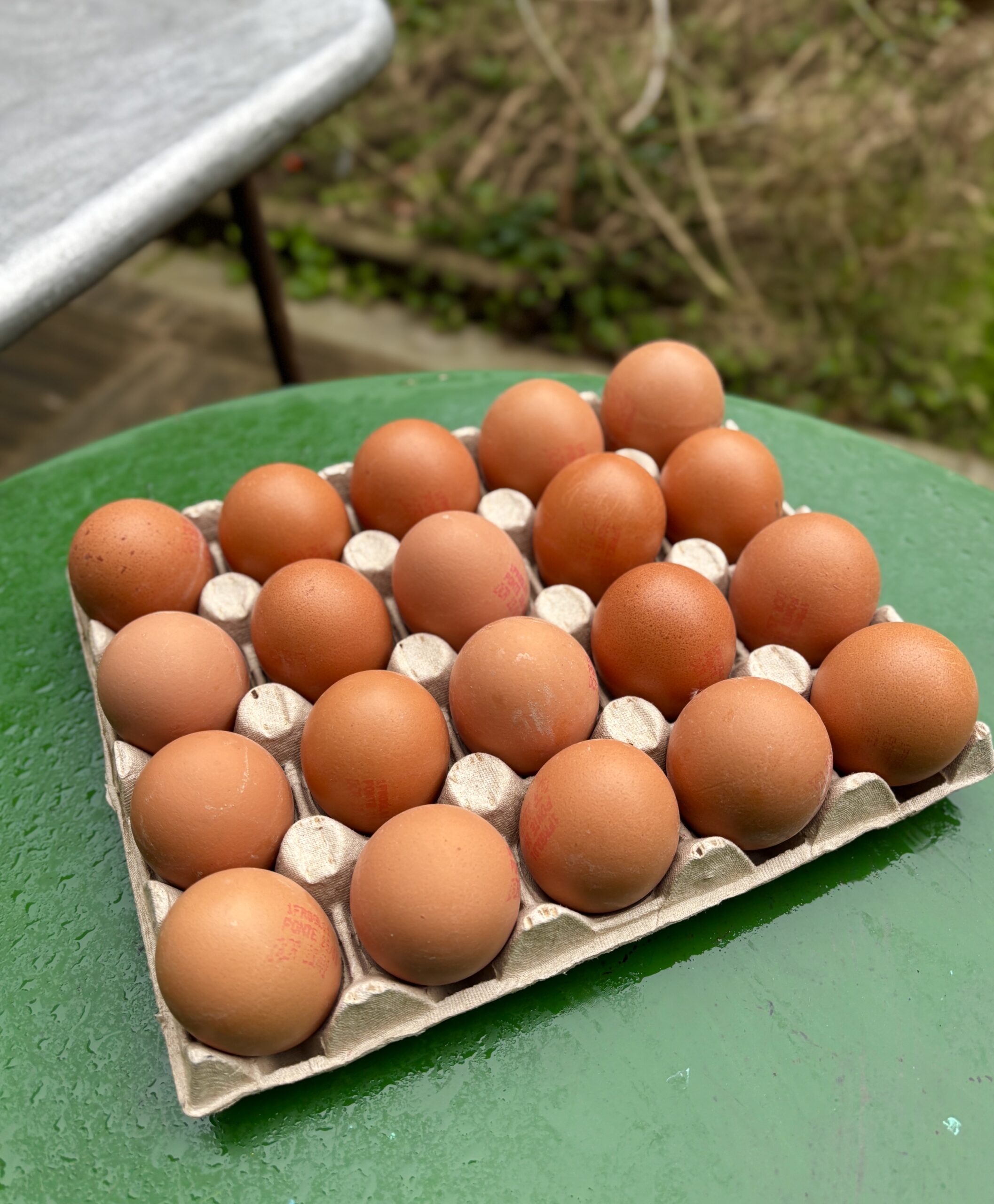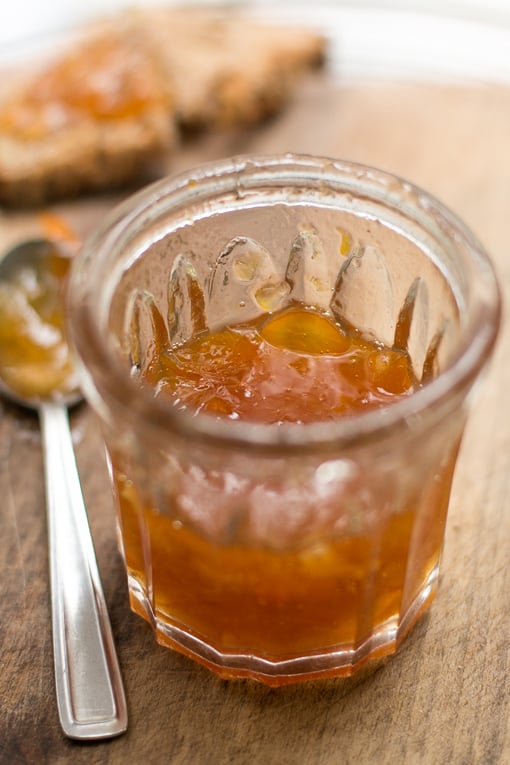How to Get a Bakery or Pastry Internship in France

Many people who embark on professional cooking careers, or just interested in having an experience in a French kitchen, are interested in coming to France to do an internship, called a stage.
I posted on Twitter, to find out how people got their stages in France. Here are some of their responses:
“I walked in and asked.”
“…sent in a cover letter, followed up, and had a contact.”
“Emails and phone calls. A lot.”
“Got the job by applying to dozens of patisseries and finally finding one that would take an American pastry chef seriously!”
“The chef-owner was standing outside of his shop having a cigarette and I struck up a conversation, and he asked me if I’d like to do an internship in his shop for a week.”
“…you automatically get one when you get your diploma from Ritz Escoffier. I couldn’t figure out how to get hooked up with one anywhere else after that, though, because of paperwork/legal restrictions..”
“..because of my school, [but] still had to send a letter, have interviews and phone calls.”
“School. In person works too.”
“I wrote 45 letters out to various bakeries, after getting a 3-month permit through www.ciee.org. Chose 1 of the responses…)”
“school arranged it.”
“A friend referred me and I emailed the chef. They were eager to have me come..” (in Provence)
Update: A reader who works placing students in internships recently (2018) sent me this, which explains the current situation in France:
“Unfortunately, the days of students coming over for the summer and walking into a position are long over. The rules governing stages are now quite strict and all stage require a work contract (convention de stage) of many pages signed by the employer and intern and school and approved and filed with the local prefecture. Inspectors come by regularly to investigate the conditions and whether they reflect the contracted agreement. Interns working over 2 months are also paid about $500 per month. Students registered in a recognized program may only work for 6 months at a time or for a total of 1 year as interns. These terms are the same for French, EU or internationals. Stages are built into the French education curriculum so its often difficult to place Americans who can only work in the summer. If you can work longer you can apply for a long stay visitor visa once you have an approved contract.
If you’re an American student currently registered and under 27 years old you are eligible to apply through your school if you can find someone to sponsor you. Of course there is the additional cost of housing and travel but some larger hotels have intern housing. Be aware that there are a limited number of slots and if you don’t speak French they might not accept you unless the Chef speaks English.
If you’re older or not in a program you may be able to pay for instruction from the chef but this is not a stage. Some people can get by the inspector under this status.”
As you can see, there is no one right or wrong way to get an internship in a French bakery or restaurant. I was recently having coffee with a well-respected chocolatier and I asked him how he hired interns. He gave me about fourteen responses, none of them explaining anyone particularly concrete method. The conclusion was that it just depends on the situation and the whims of the proprietor.
One certainly need persistence, being in the right place at the right time, or getting help from a school or professional organization. And while not absolutely required, you should have some professional experience under your belt before inquiring about an internship. If you’re interested in becoming a stagiaire in France, here are some tips and advice.
1. Do Some Research
The first thing to do, of course, is to identify the kind of place you want to work in. A butcher shop, a restaurant, cheese shop, a bakery, or another kind of business. Most people, however, seek work in a restaurant or bakery. Once you know what to focus on, do some research to learn more about that business or various places you want to target. The internet is the easiest place to start and you can search and see if those places, or others, take interns reading from the experience of others.
Some of the culinary bulletin boards, such as EGullet, Mouthfuls, and Chowhound, especially in the France forums, are good places to look.
2. Write a Letter
This is the second step. In spite of the ease of e-mail communications, most places in France usually prefer receiving a traditional letter, which is likelier to get a response. You can mail or fax it. If you’re planning on going in, in person, it still is a good idea to have a cover letter to your resumé, otherwise known as your CV (curriculum vitae).
Write a concise cover letter, and get to the point right away. This is called a lettre de motivation. It should be no longer than one page. Explain who you are, your experience, and why you want to do an internship in their establishment. There’s no need to tell your life story, just say what’s applicable and get to the point quickly. It’s also important to write the letter in French obviously. Avoid online translating tools, which make errors and hire someone who speaks French. You can find translators and students on bulletin boards and online at places like Craigslist and sites that provide translation services. You do not need a certified translator, but plan on paying about $20-$40 per page.
Should you decide to write it yourself, remember that the French use a lot of salutations when letter-writing and they judge applicants not just on how well letters are written, but the applicants handwriting (if you write it by hand), and if the correct salutations are used.
(Here is a guide to French Business Correspondence.)
Often with a French CV, which we call aresumé (they don’t use that term and you shouldn’t either), a current photo is included. It’s not necessary, but you may want to include one if you’re seeking work in the service industry. French identification photos should be a straight-on head shot, and you should not be smiling.
Do not write a generic letter and send it to a bunch of places; personalize each one. Include your contact information; your address, e-mail address, and fax number. Attach your CV.
(You can find a template at How to Write French Résumés.)
Mention your availability—being flexible is best, and explain your knowledge of the French language. You do not need to speak fluent French but it’s good to let them know your level of comprehension. If you don’t speak French, I strongly recommend taking some French classes or a French language intensive if you want to get the most out of your experience.
3. Expect Anything
Restaurants and bakers are hectic, and people work at a crazy pace. Most professional kitchens are tough places, and newcomers are not always made to feel welcome. After having spent thirty-five years working in professional kitchens, the onus is on you to prove yourself.
Newcomers and interns can expect to be filling flour bins, lifting dough, emptying the trash, and spending hours peeling the skins off walnuts or cutting mounds of butter into perfect little squares in very fine establishments. You may encounter xenophobia and sexism, both of which are still alive in professional kitchens around the world so having a tough shell is important.
Expect anything, including working long hours: in France, the staff in three-star restaurants often work both the lunch and the dinner shifts every day.
4. Paying for the Privilege
Some of the more popular and famous places are now charging for the privilege of working there. When I was writing my chocolate book, I inquired with a well-known chocolate maker in France about working there for a week so I could feature them in my book. Their response was that I was welcome to come—for €500.
Because of the strong demand to work in French establishments, some have so many applicants that they will request a fee from interns to cover the costs, which often include administration and helping you find housing and a visa if it’s a particularly large establishment.
Also if you intern at a well-known place, you can include that in your resumé, and in some cases, you might get hired. In any case, it may be a worthwhile investment. So don’t be surprised if you’re asked to pay a fee, especially in Michelin-starred places, although it’s not all that common elsewhere.
Note that French labor laws are strict about who can, and can’t work in France, and that if a business accepts people from outside the European Union, they must comply with certain rules and regulations. (See #6 below.)
5. Consider it an Honor
It is considered a great honor to work in certain places, most notably the kitchens of grand restaurants (such as a 3-star establishment.) And as valuable as you think you might be to such a place, they have a long line of people waiting to get in the door. Plus they have a dining room full of guests to please, so come in humbly, and be open to learning.
Chefs, head bakers, and pastry chefs in France are accorded with more respect than you might imagine. If one is wearing the red, white and blue striped collar, she or he is an MOF, which means they’re passed an extremely rigorously test to achieve that. Whoever you work for, if they tell you to do something, you do it without asking why.
In France, there’s a long-established system of apprentisage where you always respond, “Oui, chef” to any requests made of you. For those not used to being in that kind of position, and in that kind of relationship, with a chef, realize that in France, head chefs, pastry chefs, and bakers command a lot of respect from their staff, which is usually well-earned. Always speak to people who are your superiors with respect.
5. Back to School?
The top culinary schools in France have relationships with various restaurants and pastry shops, and place students in internships. Schools in Paris include Ecole Ferrandi, Cordon Bleu, and Ritz Escoffier, and Ecole Lenôtre.
(Please note that I only attended Ecole Lenôtre, which I recommend, but can’t give advice about other programs.)
Some of these schools offer courses in various languages, others only in French. If you attend the schools, they will help you get an internship.
6. Visas
Current rules in France, for Americans, allow you to stay here 90 days without a visa. After that, you should have a visa. It’s a rather complicated, and confounding process (Ressortissants étrangers), which some people avoid.
Foreign students may get help from their school, but you should inquire with your local consulate about requirements if you wish to stay in the country longer than those 90 days. Be prepared for a variety of answers, if you get one, not all of which may be correct. The various websites of the French consulates in the United States have conflicting information, which is one of the quirks of the system.
Certain French establishments will not take on interns from non-EU countries because of laws requiring working papers and health insurance. However a new initiative in France provides possible visa assistance for stays of 18 months for training in France.
7. Face Time
You may want to come to France and inquire in person about working in a shop. As mentioned, often chefs are quite busy and don’t have time to read their mail. Making an appointment and showing up to meet and inquire is another strategy you might consider. A personal appearance shows a commitment and gives them a chance to size you up as well.
The French enjoy meeting in person, but a face-to-face meeting also gives them a better opportunity to gauge your level of interest first-hand. It also gives you an opportunity to check out the kitchen and see if the place is right for you as well.
8. There’s No Place Like Home
If you aren’t able to get an internship in France, consider another country. There are great restaurants in Belgium, Spain, Italy, Japan, Canada, the United States and elsewhere. Although I’ve personally had wonderful learning experiences in France, there are great chefs, restaurants, and bakeries in your home country.
Related Links and Resources
Wwoof: Organization that places interns at organic farms in France
New York Chef Wylie Dufresne on Internships (Eater)
www.ciee.org (Council on International Educational Exchange)
Ferrandi Culinary School Advice (EGullet)
French CV: Template for French Resumé (iAgora.com)
Stages in Paris, Stagiaires, Working in France (eGullet)
Living, Studying, and Working in France (Amazon)
The Labor Market in France (Expat Blog)
Sacré Cordon Bleu! (by Michael Booth)
How Do I Get a Professional Cooking/Baking Job in a Restaurant? (Eggbeater)
Embassy of France in Washington
Getting a French Visa (France Diplomatie)
So you want to Stage (Intern) in a Restaurant (Herbivoracious)
















